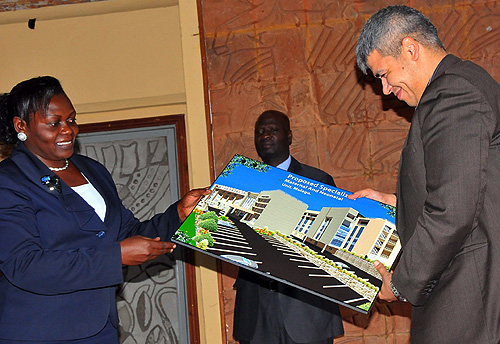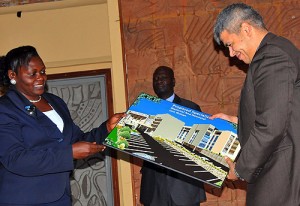By Patrick Jaramogi
Fifty six percent of the pregnancies in Uganda are unintended, leading to high levels of unplanned births, unsafe abortion and maternal injury and death, a new study has revealed.
According to the report; “The state of sexual Reproductive Health in Uganda” that was released at the Kabira Country Club, Uganda the worlds’ third fastest growing population (After Qatar and Zimbabwe) currently registers at least three million pregnancies annually. The increase in pregnancies has shot up from 2.2 million in 2008 to 3 million this year.
“We have discovered that Ugandans are sexually active. One in three sexually active women in Uganda, both married and unmarried, want to avoid pregnancy but are not using a method of contraception,” said Dr. Charles Kiggundu a consultant obstetrician gynaecologist.
Kiggundu who was part of the team that did the research in the country funded by the US based Guttmacher Institute and the Center for Health, Human Rights and Development (CEHURD) said Uganda has one of the highest recorded levels of unmet need for contraceptives in Sub Saharan African according to the new report by the Guttmacher Institute.
“According to the 2011 Uganda Demographic and Health Survey, (DHS), more than four in 10 births are not planned. Unintended pregnancy is the cause of most abortions in Uganda,” said Kiggundu. He said the study also revealed that 50 percent of the girls in Uganda have sex by the age of 16, with the percentage shooting to 80 percent when they clock 19 years.
He said that out of the 3 million pregnancies registered annually, 56 percent are unintended (1.7 million), and 30 percent end up in abortions, while 14 percent are miscarriages. He pointed out that even educated married women find it hard to avoid pregnancies leading to unintended births or unsafe abortions.
‘This epidemic of unintended pregnancy takes a devastating toll on women, families and communities leading to over 30,000 abortions annually,” he said. Adding, “Investment is needed to expand the scope of services available to women but as long as women continue to have unwanted pregnancies, they will continue to resort to unsafe abortion.”
Dr. Zainab Akol the Principle Medical Officer Reproductive and Maternal Health department in the Ministry of Health who launched the report said 26 percent of the maternal deaths are attributed to unsafe abortions.
‘We need as government to partner with the private entities to up the fight on maternal deaths,” she said. She said more funding was needed to address the reproductive health issues that affect women.
Dr. Cynthia Summer the Vice President Guttmacher Institute said Ugandan women from all levels of society experience unintended pregnancy and thus seek out an abortion, virtually which is clandestine and unsafe. “But the level of risk varies depending on a woman’s social-economic status. While wealthier women turn to doctors, and nurses for an abortion, the rural poor women obtain abortions from untrained providers using unsafe methods,” said Summer.
Moses Mulumba the CEHURD executive director said Uganda’s law on abortion is much more expansive than commonly believed. “Abortion is permitted to preserve the life, mental and physical health of the pregnant women. The current law needs further clarification on how it should be implemented,” noted Mulumba.
Source:http://www.newvision.co.ug/news/639732-1-7-million-annual-births-are-unintended-report.html


